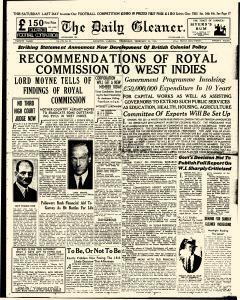Is a crime the product of a twisted mind, or the natural consequence of a society burdened by a heavy history? It might be both. A writer who examines the sociological along with the psychological makes the story all the sweeter. Crime novels appeal to our yearning for answers and justice, as individuals and as societies. The psychological weft is strung on the sociological warp; new vices spring from unresolved atrocities. If we ignore or bury history, we miss half of the clues that will solve the case.
Here is a list containing five novels and one report, plus one short story that reminds us of the perils of forgetting how we got here in the first place.
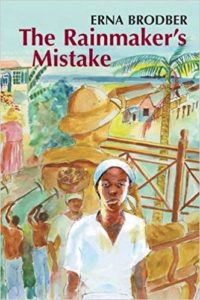
The Rainmaker’s Mistake by Erna Brodber
Published in 2007 and written by award-winning Jamaican author and sociologist Erna Brodber, this surreal story is based on history, and a mystery. Who created this creepily idyllic plantation, where no one is born and no one dies? Emancipation comes to break the spell, sending the formerly enslaved (now mortal, though slowly aging) out on a journey of personal and national discovery from enslavement to independence. Memories extend to the future, uncovering a transgression so uniquely destructive that only exile and forgetting could atone for it.
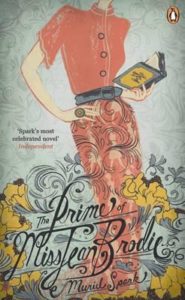
The Prime of Miss Jean Brodie by Muriel Spark
Published in 1961, this slender book by Scottish writer Muriel Spark is set in the 1930s between the aftermath of the First World War and the approaching shadow of the Second. Miss Jean Brodie is a teacher in her prime—unconventional in her methods, an admirer of Fascism, and possessing a worrying degree of influence over those pupils she wishes to make into the ‘crème de la crème’. We learn from the beginning that Miss Brodie was betrayed by one of her favorite pupils. As the story flashes forward and back in the lives of the girls and their teacher, we eventually find out who did it, and see what made her decide that it was time to put a stop to Miss Jean Brodie.
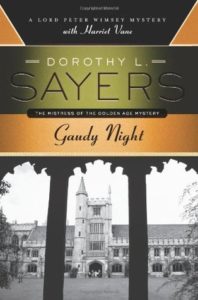
Gaudy Night by Dorothy L. Sayers
Written by English author Dorothy L. Sayers as part of the Lord Peter Wimsey detective series, the story is also set in the 1930s, but contemporary to the author, filled with the memories of the Great War but no knowledge yet of the Second to come. During the War, women were called upon to fill positions left empty by absent fathers, brothers, sons. After the War, an immediate return to the domestic sphere was encouraged and expected. However, war or no war, women of exceptional ability will always rise to the top of their fields. Someone takes a strong dislike to the academics of a fictional women’s college at Oxford University, and Harriet Vane, herself a graduate of that college, is called in to find out who it is before harassment escalates to murder.
The Moyne Report (The Report of the West India Royal Commission)
This official report provides an analysis of the causes behind the strikes, protests and riots that swept through the British West Indies during the 1930s. The sugar industry was in a shambles; the plantocracy refused to pay their laborers a living wage; a flood of migrant workers returned home as unemployment rates rose around the world; and people were suffering. Completed on the eve of the Second World War, the report remained unpublished until 1945 due to concerns that the desperate conditions documented therein could be used as propaganda against the British Empire during WWII.
Which brings us back to the 21st century and …
West India Royal Commission Report: p.423 ‘The institution of marriage was for historical reasons [italics mine] never the rule in the West Indies …’
Ross, The Bone Readers, p 199. ‘… we… have no language for atrocity; or if we do, we cannot bring ourselves to use it. We’d rather make ourselves forget.’

The Bone Readers by Jacob Ross
Published in 2016, written by award-winning Grenadian author Jacob Ross, this police procedural murder mystery takes place on a fictional Caribbean island. The population lives with the weight of history—descendants of an enslaved people who were for centuries denied marriage, family, or even consent; children of revolution and conflict still trying to make sense of what befell their parents; youth with potential but no prospects walking a tightrope between law and crime, with corruption and violence endemic in both systems. And yet, with all this burden, and all the bodies, the tale is told with fondness, humor, and hopefulness for humanity.
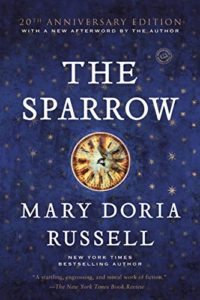
The Sparrow by Mary Doria Russell
This science fiction novel, published in 1996, won American author Mary Doria Russell several awards for its depiction of disastrous first contact between the crew of a spaceship from Earth and the alien inhabitants of a distant planet. The how unfolds gradually, with the narration of the preparation, journey, and discoveries of the Earth mission interspersed with chapters describing the recovery, confession and inquisition of the sole surviving member nearly forty years later in 2060. Deliberate echoes of the Colombian encounter between the Old World and the New raise questions of interpretation, understanding, and mutual respect between civilisations, and the terrible things that can happen in a universe where good intentions are not enough.
… and one short story about forgetting.
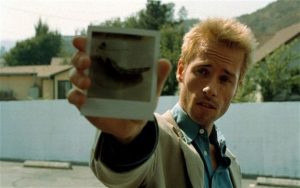
‘Memento Mori’ by Jonathan Nolan
Many people have encountered a version of this story in the film Memento, which is based on the same concept. Christopher Nolan made the movie, but it was his brother, British-American writer, producer and director Jonathan Nolan, who came up with the concept and wrote this story.
A man suffers an attack which permanently damages his ability to form long term memory. He knows his wife is dead. He knows he wants to kill the man who murdered her. But how will he manage that in his condition? How does he bridge the recurring gap of amnesia between his past selves and his present self? Can he feel any satisfaction for a revenge he can’t remember? Or does his obsession simply show our persistent attachment to the idea of justice, even when faced with the non-permanence of our selves?


